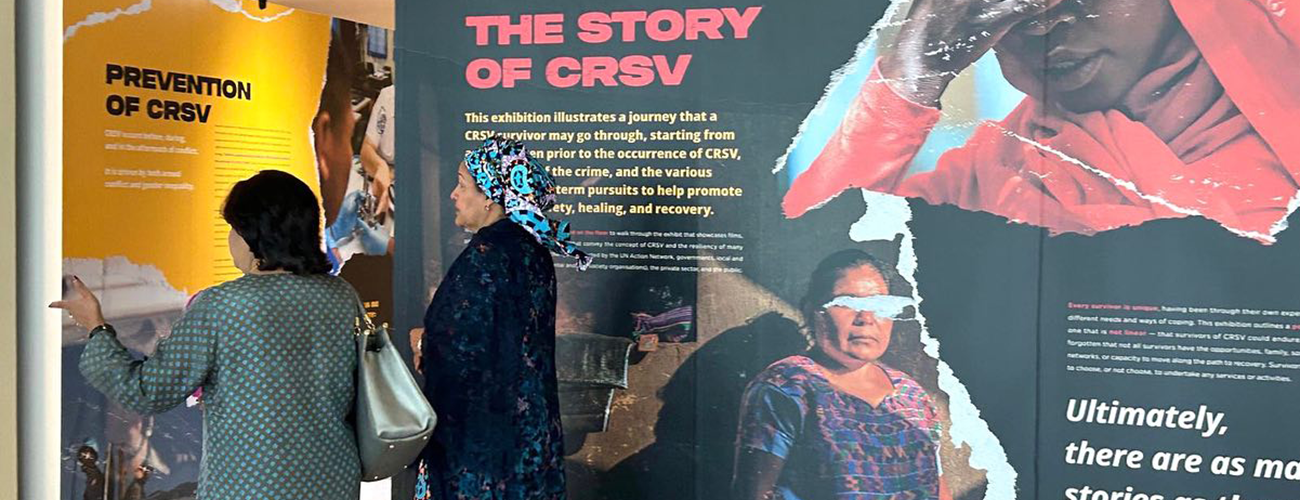Deputy secretary-general and SRSG for sexual violence in conflict visit exhibition on conflict-related sexual violence. August 7, 2023. (United Nations)
Since the Security Council first recognized conflict-related sexual violence (CRSV) as a threat to international peace and security in 2008, the UN has developed an increasing number of pathways to prevent and respond to such crimes. One of these is the annual report of the secretary-general on CRSV, which includes an annexed list of perpetrators who are credibly suspected of committing or being responsible for patterns of CRSV violations in contexts on the agenda of the Security Council. In addition, perpetrators of CRSV may also be designated in UN sanctions regimes. Yet while both of these processes aim to prevent and respond to CRSV, they are not always coherent with one another.
This paper analyzes the relationship between the annual reports of the secretary-general on CRSV and sanctions designations to provide recommendations to enhance their complementarity. It provides an overview of the CRSV annual report and the process for listing parties. It then focuses on designations in sanctions regimes for crimes related to sexual and gender-based violence (SGBV), including the level of coherence between the reporting of the secretary-general and designations in sanctions regimes. Next, the paper analyzes the reporting and political barriers that inhibit more regular designations for SGBV in sanctions regimes. Finally, it provides recommendations to the UN and member states on how to improve the coherence, coordination, and effectiveness of these processes, including the following.
For member states:
- Explicitly list SGBV as a criterion within all sanctions regimes for contexts where sexual violence may be taking place.
- Prioritize utilizing existing SGBV-related criteria as appropriate with available evidence.
- Provide additional resources for panels of experts.
- Increase coherence between the parties listed in the annual reports on CRSV and the individuals and entities designated in sanctions regimes.
- Organize an annual field visit for sanctions committees to the context in question.
- Create a standing capacity within the UN to engage with designated parties, with the aim of encouraging compliance and facilitating de-listing.
For the UN Secretariat and panels of experts:
- Establish a platform for regularly coordinating and sharing information between the office of the special representative of the secretary-general on sexual violence in conflict and panels of experts.
- Institute more structured handover processes between incoming and outgoing members of panels of experts.
- Provide more robust training on SGBV for panels of experts.
- Strengthen CRSV expertise and capacity within the Security Council Affairs Division.








